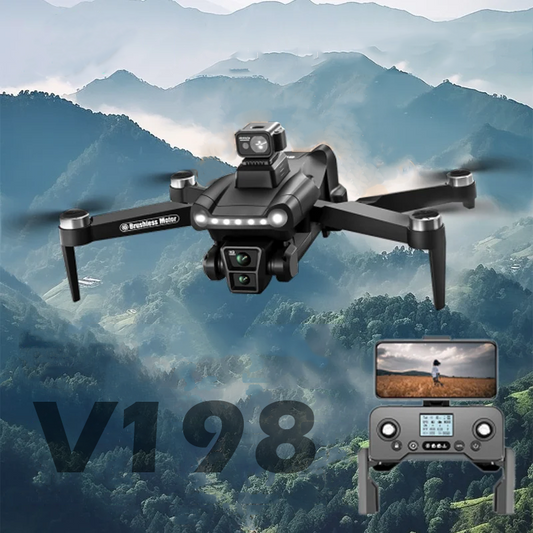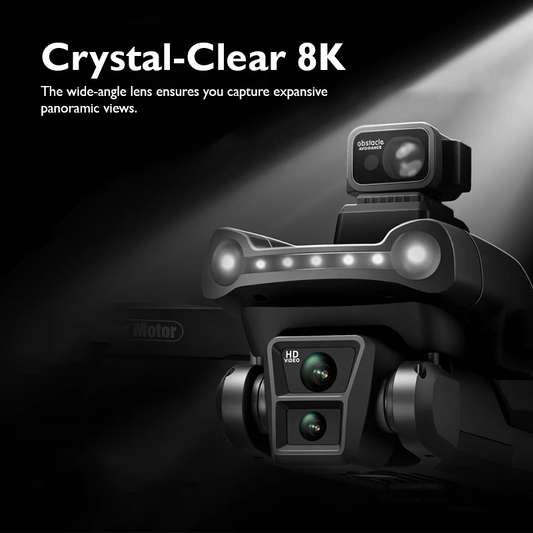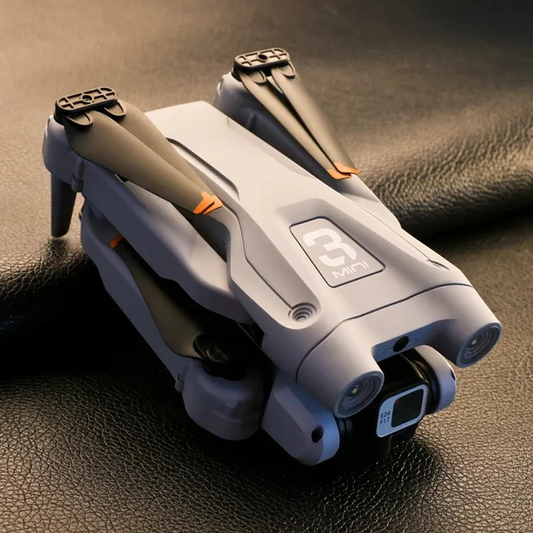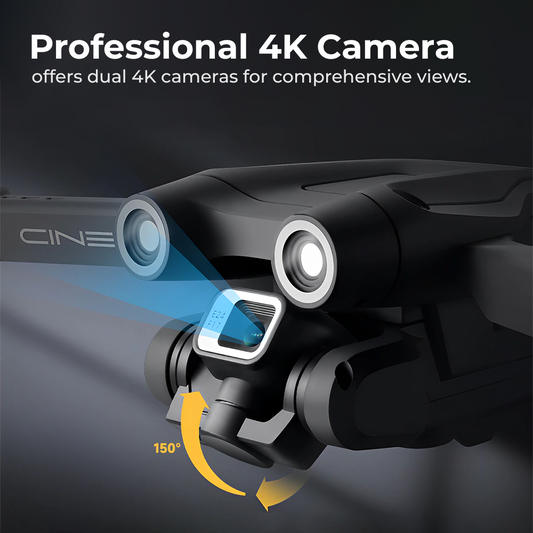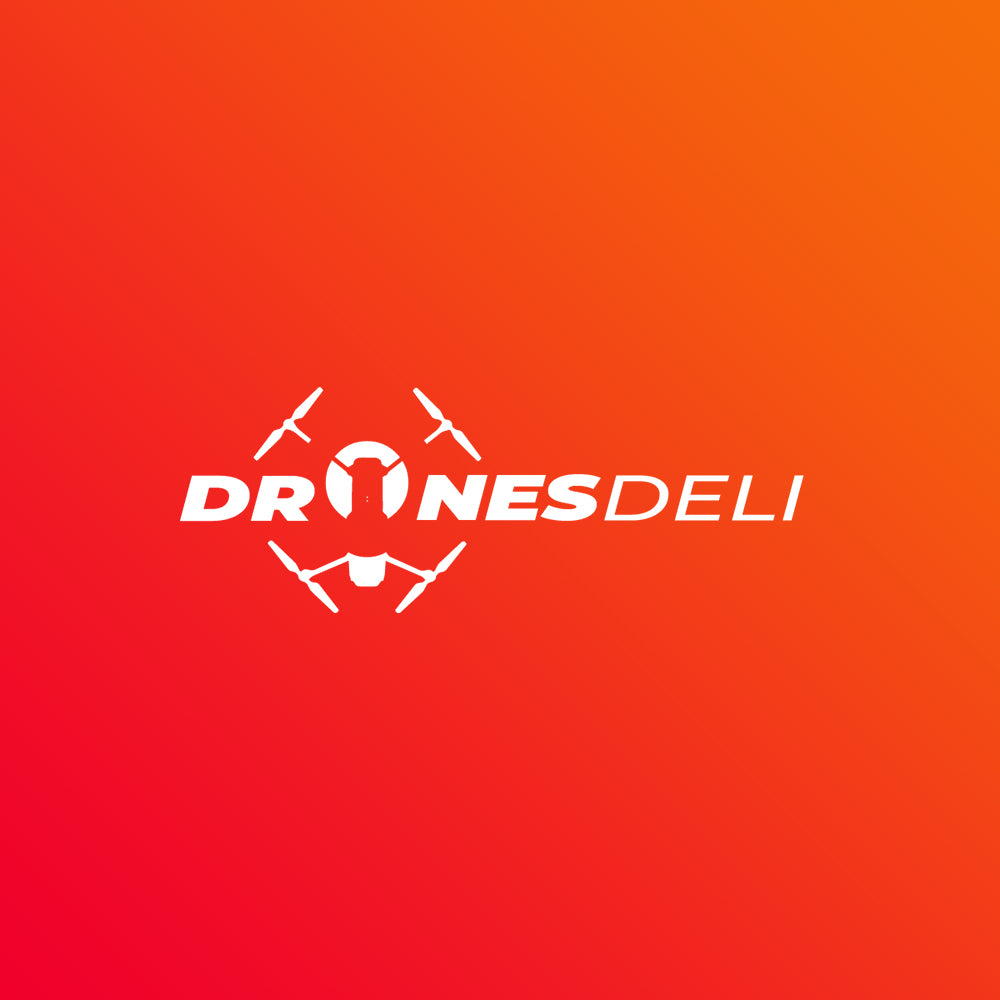The Future of Drones in Retail Inventory Management

In today's fast-paced retail landscape, staying ahead of the curve is not just a competitive advantage—it's a necessity. As technology continues to evolve, innovative solutions emerge to streamline operations and enhance efficiency. Among these cutting-edge advancements, drones have emerged as a game-changer, promising to revolutionize the way retailers manage their inventory.
1.The Rise of Drones in Retail

Over the past decade, drones have transitioned from being primarily associated with recreational use to becoming essential tools across various industries. In the realm of retail, their potential is being increasingly recognized and harnessed. By leveraging the capabilities of unmanned aerial vehicles (UAVs), retailers can overcome longstanding challenges in inventory management, paving the way for a more agile and responsive supply chain.
2.Enhancing Efficiency and Accuracy

One of the most significant benefits drones offer in retail inventory management is the ability to conduct aerial scans of large warehouse spaces rapidly. Traditional inventory audits often require substantial time and manpower, leading to inefficiencies and inaccuracies. With drones, retailers can automate this process, significantly reducing the time and resources required while improving accuracy.
Equipped with advanced sensors and imaging technology, drones can capture detailed data of inventory levels and storage conditions with unparalleled precision. This real-time visibility empowers retailers to make informed decisions promptly, whether it involves restocking shelves, optimizing storage layouts, or identifying discrepancies in inventory counts.
3.Optimizing Warehouse Operations

In addition to inventory audits, drones can optimize various aspects of warehouse operations. By autonomously navigating through aisles and storage racks, drones can perform routine tasks such as stock verification, location tracking, and barcode scanning with exceptional speed and efficiency. This automation not only accelerates inventory management processes but also reduces the likelihood of human error, leading to more reliable inventory records.
Moreover, drones can assist in monitoring environmental factors within the warehouse, such as temperature and humidity levels, ensuring optimal conditions for storing perishable goods and sensitive inventory items. By proactively identifying potential issues, retailers can mitigate risks of spoilage or damage, thus preserving product quality and minimizing losses.
4.Streamlining Order Fulfillment

Beyond warehouse operations, drones hold promise in revolutionizing the order fulfillment process. With the rise of e-commerce and the increasing demand for same-day delivery services, retailers are under pressure to expedite order processing while minimizing fulfillment costs. Drones offer a viable solution by enabling swift and efficient order picking and packing, particularly for small, lightweight items.
By deploying drones in fulfillment centers, retailers can reduce the time and resources required to fulfill orders, leading to faster delivery times and enhanced customer satisfaction. Furthermore, drones can navigate through congested warehouse environments with ease, bypassing obstacles and optimizing route efficiency to meet tight deadlines effectively.
5.Overcoming Challenges and Embracing Opportunities

While the integration of drones into retail inventory management holds immense potential, it is not without its challenges. Regulatory hurdles, technological limitations, and concerns regarding privacy and safety must be addressed to ensure responsible and sustainable implementation. However, with ongoing advancements in drone technology and collaborative efforts between industry stakeholders and regulatory bodies, these challenges can be overcome.
As retailers navigate the evolving landscape of inventory management, embracing drone technology presents unparalleled opportunities for innovation and growth. By harnessing the power of drones to streamline operations, enhance accuracy, and improve efficiency, retailers can gain a competitive edge in an increasingly dynamic market environment.
6.The Future of Drones in Retail

The future of drones in retail inventory management is brimming with possibilities. As technology continues to evolve, drones will become increasingly intelligent and autonomous, capable of performing complex tasks with minimal human intervention. From predictive analytics to dynamic inventory optimization, drones will play a pivotal role in shaping the future of retail supply chains.
Moreover, the integration of drones with other emerging technologies, such as artificial intelligence (AI) and the Internet of Things (IoT), will further amplify their impact on retail operations. By leveraging AI-driven algorithms and IoT-enabled sensors, drones can proactively identify trends, predict demand fluctuations, and optimize inventory replenishment strategies in real-time.
Furthermore, the advent of urban air mobility (UAM) infrastructure and drone delivery networks will unlock new possibilities for last-mile logistics, enabling retailers to reach customers in densely populated areas more efficiently. From rapid grocery delivery to on-demand product replenishment, drones will redefine the concept of convenience in retail, offering unprecedented speed and accessibility to consumers.
In conclusion, the future of drones in retail inventory management is characterized by innovation, efficiency, and agility. By embracing this transformative technology, retailers can unlock new opportunities for growth, streamline operations, and enhance the overall customer experience. As drones continue to evolve and proliferate, they will undoubtedly reshape the landscape of retail supply chains, ushering in a new era of efficiency and competitiveness.
Explore a variety of drones at our online drone store.
Happy Flying!





